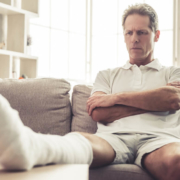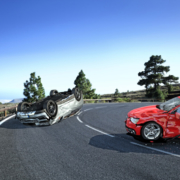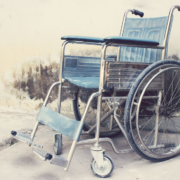I Have Already Talked to the Insurance Company About My Auto Accident. Am I In Trouble?
You have been injured in an accident. Before you could even Google “what to do after a car accident,” the other party’s car insurance provider called you. That is a good sign that the accident was not your fault, and that they want to settle quickly.
Unfortunately, you chatted with them a little too long before you read that you should not ever speak to the other party’s insurance company unless you have already talked to an attorney. Now what?
While it is best to avoid speaking to the other party’s insurance provider, it is never too late to contact an attorney and find out how to move forward with your claim. Use these tips to help.
Relax and Do not Answer Any More Calls
Do not worry too much about hurting your claim. What has done is done, and all you can do is move forward. However, limit the damage done by avoiding any more calls from the insurance company. Instead, use that time to contact an experienced personal injury attorney to find out how they can help you.
Why Talking to Insurance Companies After An Accident Can Be Harmful
Knowing why you should not talk to insurance adjusters makes it much easier to ignore their calls and do what is best for you. First, remember that they are not on your side. They might seem friendly or sympathetic about your injuries, but their goal is to get their company off the hook with as small a settlement as possible.
Anything you tell the adjuster during your calls can be used to discredit you or weaken your claim. For example, imagine you tell the adjuster how the accident happened. They ask you if they can do a recorded statement to make the claim go faster, and you comply. During your recorded statement, you say that your passenger was sitting behind you—but during the first retelling, you said they were sitting behind the passenger seat.
This small and irrelevant detail is enough for insurance companies to throw suspicion on your claim and assume that you are untrustworthy. Any small error, no matter how pointless, can derail your claim.
Another reason you should not talk to insurance company representatives after an accident is that you simply don’t have the full picture of your injuries yet. If you talk to the adjuster a day or two after your accident, you are likely in pain but still coming down from the adrenaline rush of the accident. You might feel okay, but that doesn’t mean you don’t have serious injuries. However, once you give the company the impression that you are on the mend, it is unlikely you will be able to convince them otherwise.
Remember What You Told Them
For your attorney to assist you, you should try to remember what you told the insurance company before you stopped contacting them. Jot down anything you can remember about the conversations you had, what they told you, and what you told them. This can be very helpful to your attorney, since it might show them different angles the insurance company will use to limit your settlement amount.
Don’t be embarrassed and downplay what you told the insurance company. Sometimes, accident victims worry that they will look stupid if they tell the attorney that they submitted a recorded statement or told the insurance adjuster that they were feeling better. Do not fall into this trap. This can lead to your attorney being blindsided when they find out what you actually said. Honesty is the best policy.
Contact an Experienced Personal Injury Attorney
Before you go any further with your accident claim, hire a personal injury attorney. That is the most important step once you stop talking to the insurance company. A skilled car accident attorney will be able to look at the facts of your accident, figure out the value of your injuries, look at what you told the insurance company already, and come up with a game plan.
Most personal injury cases settle out of court, so your attorney’s first goal will be to negotiate a fair settlement for you. This involves presenting evidence, clearly establishing liability, and demonstrating the effects of your injury on your life.
Note, though, that some personal injury cases do go to court. This can happen when liability is hard to prove or when an insurance company just isn’t interested in negotiating fairly. If this happens, your attorney will prepare for court while keeping the door open to negotiations prior to the beginning of your court case.
Take the first step now toward a successful injury claim by contacting a seasoned personal injury attorney in your area.










